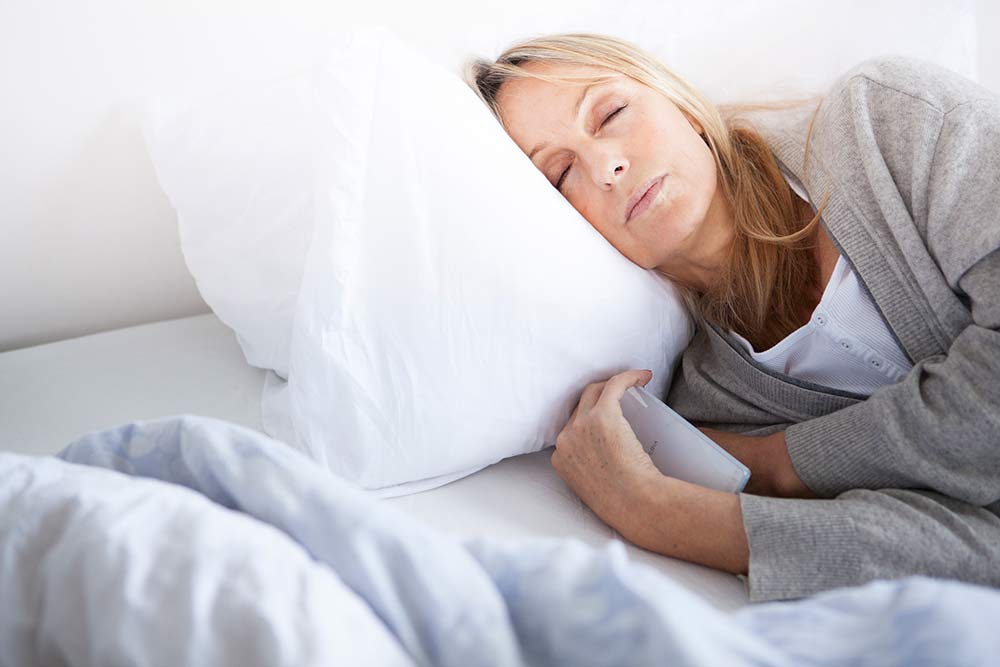Health
How To Reach Your Health And Fitness Goals After Menopause
It’s not uncommon to hear that as we get older, it’s harder to lose weight and reach our goals.
The truth is that the changes that occur in our bodies as we age can make things more difficult in terms of weight loss, but it doesn’t make it impossible.
As women age, their ovaries begin to produce less of the sex hormones estrogen and progesterone. These hormones are what regulate our periods during childbearing years and facilitate sexual development during puberty.
As these hormones begin to decrease, many women begin to experience symptoms such as menstrual periods that are irregular or occur less often, hot flashes, night sweats, vaginal dryness, painful intercourse, increased anxiety or irritability, rapid heart rate, and problems sleeping.
Another common complaint of women experiencing menopause is weight gain. While some hypothesize that this weight gain is due to a slowing metabolism, the cause is likely related to the hormonal imbalances that occur during menopause.
Estrogen is stored in our body’s fat cells, so when our estrogen levels begin to fall, our body attempts to hold onto fat to try to increase the level of estrogen in our body back to normal.
While menopause may make losing weight and reaching your goals slightly more difficult, it doesn’t make it impossible.
Here are some tips to help you keep your body healthy and fit during menopause:
Schedule rest into your day

While decreasing levels of estrogen may cause some weight gain, not getting enough sleep will also increase your chances of gaining weight.
Insomnia is another symptom of menopause, so it is important to make sure your body is getting enough rest to recover.
According to the National Sleep Foundation, 61% of perimenopausal and postmenopausal women reported having sleep disturbances throughout the night.
Some ways to help make sure you’re getting enough rest are to schedule time to rest or nap during your day, try to go to bed and wake up at the same time every day, avoid caffeine and other stimulants close to bedtime, and stay away from activities involving a screen (like watching TV or playing on your phone) for at least one hour before bed.
Eat a balanced diet
Having proper nutrition can help ease and prevent some of the symptoms experienced during menopause and ensure that you are fueling your body in the best way to help you achieve your goals.
Aim to increase your daily intake of fruits and vegetables to make sure you are getting the micronutrients and vitamins your body needs. Fruits and veggies are also a great source of fiber, which is important to make sure you have regular bowel function and to keep you full for longer periods of time.
Other top sources of fiber include whole grain bread, cereal, pasta, rice, sweet potato, asparagus, avocado, and berries.
Women’s diets are also typically low in calcium and iron, so include some foods that are rich in these nutrients like milk, cheese, yogurt, broccoli, legumes, and leafy greens.
– RELATED: Everything You Need To Know About Hormones –
Get enough exercise

The hormonal changes that occur during menopause increase your risk for chronic health problems like heart disease, stroke, and osteoporosis – all things that regular exercise helps prevent!
It is recommended to get five hours of total exercise per week to keep your body healthy. Not only does exercise prevent weight gain and help with weight loss, but it also leads to improved cardiovascular health, decreased risk for chronic health conditions like diabetes, and decreased stress and anxiety.
Everything in moderation
Limit your intake of alcohol, sugar, and processed foods. Alcohol contains empty calories with no nutritional benefit, meaning regular consumption will almost definitely lead to weight gain.
Alcohol also contributes to high blood pressure, cardiovascular disease, stroke, liver disease, and digestive problems… issues no one wants to have no matter how old they are!
Foods that have added sugars are everywhere… from beverages to packaged snacks to desserts, added sugars make up about 300 calories a day in the average American diet.
This can easily contribute to weight gain of as much as a pound per week! Processed foods are full of sugar, sodium, and artificial colors and flavors that increase your chance for weight gain and can be detrimental to your overall health.
Explore complementary therapies

While there isn’t enough research to prove the effectiveness of alternative therapies, many people believe they help with alleviating some of the symptoms of menopause.
Herbal and botanical supplements such as primrose oil, black cohosh, flaxseed, and many others have been used with the goal of relieving menopausal symptoms, however they are not approved by the FDA.
It’s important to talk with your doctor before starting any new supplements to make sure they won’t interact with other medications or cause unwanted side effects.
Other alternative therapies such as meditation, massage, acupuncture, and chiropractic therapy can be used to help decrease stress and alleviate pain.
By taking a few simple steps and making small changes to your lifestyle, you can combat menopausal weight gain and improve your overall health. While menopause may be a barrier on the road to your goals, it is something that anyone can overcome by continuing to work hard and optimizing your plan so it fits you!





















